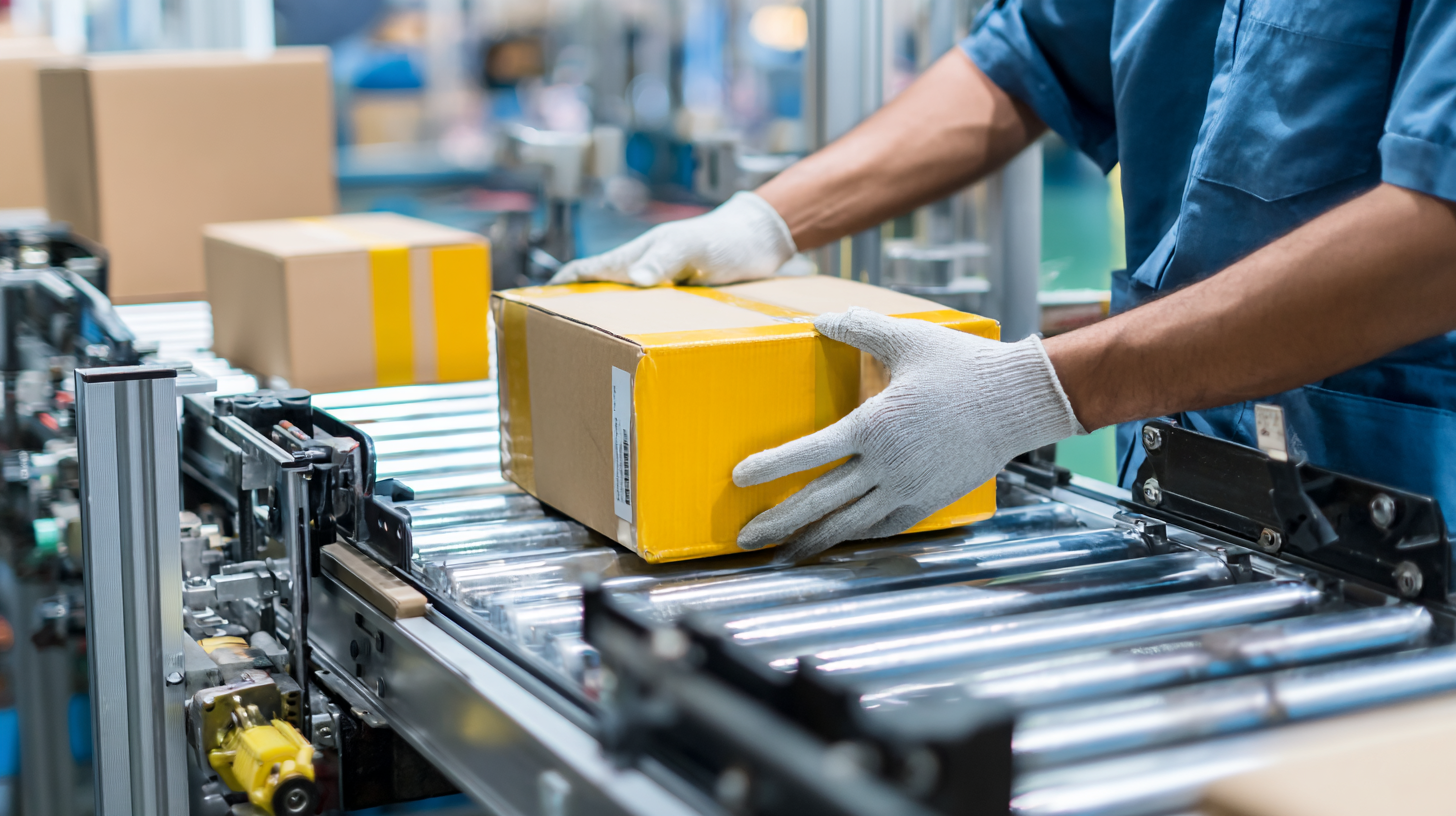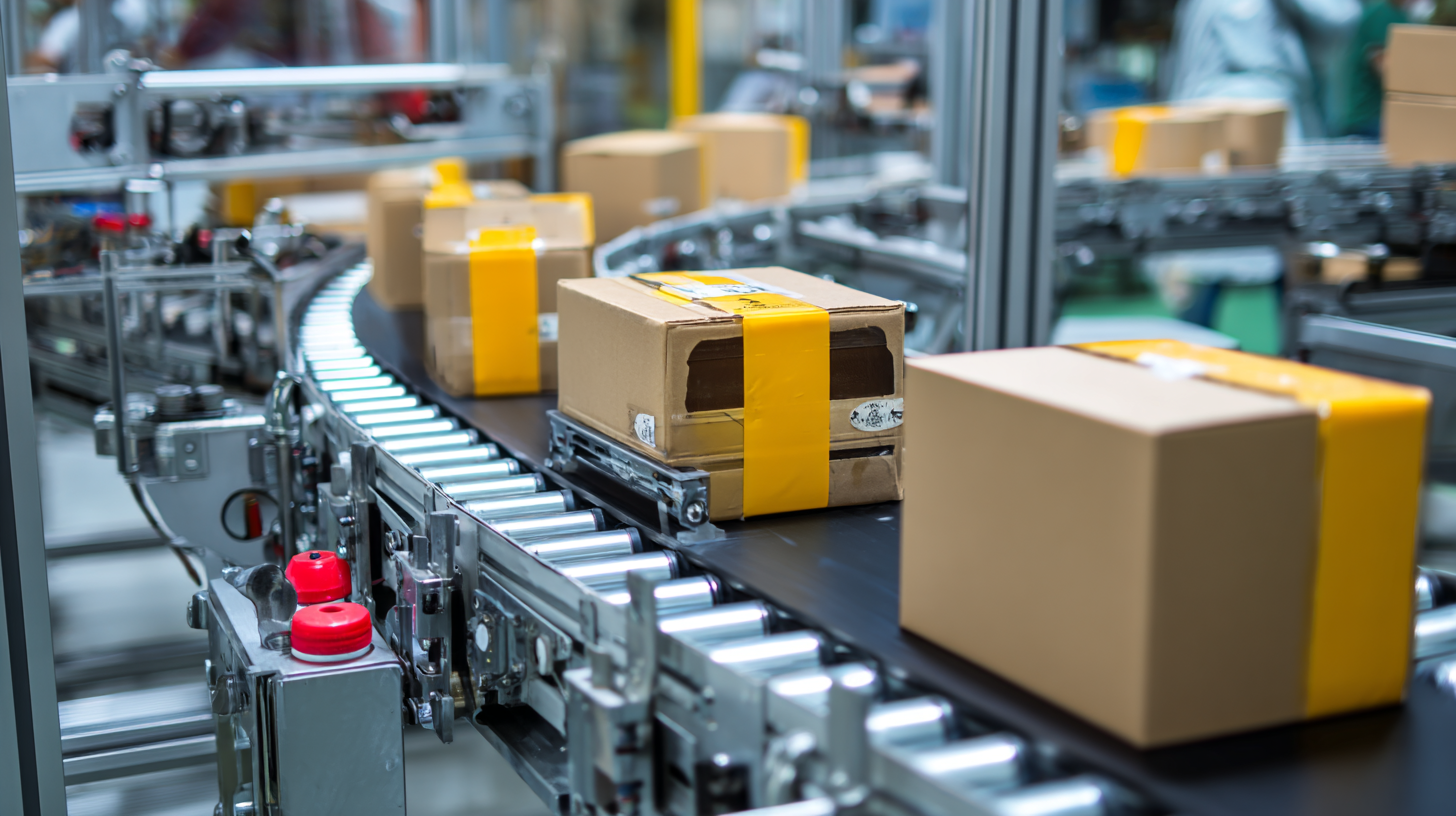A-B-C Blog
Finding Quality Suppliers for Best Wrap Around Case Packers Essential Checklist for Global Buyers
In the fast-paced world of global commerce, sourcing the right equipment can significantly impact efficiency and profitability. For businesses seeking optimal packaging solutions, the Wrap Around Case Packer stands out as a versatile tool for ensuring products are securely packed for distribution. However, finding quality suppliers for these essential machines can be a daunting task, given the myriad of options available in the marketplace. An effective approach involves evaluating not just the initial purchase price, but also after-sales service advantages and maintenance costs. Factors like warranty terms, the availability of spare parts, and the supplier's reputation for customer support become critical in making an informed decision. This blog aims to provide global buyers with a comprehensive checklist, highlighting key considerations and examples that can streamline the supplier selection process for Wrap Around Case Packers, ultimately leading to enhanced operational efficiency and reduced long-term costs.

Understanding the Importance of Quality Suppliers in Wrap Around Case Packing
When it comes to wrap around case packing, finding quality suppliers is paramount for global buyers. The importance of choosing the right suppliers cannot be overstated, as they directly impact the efficiency, reliability, and overall success of packaging operations. Quality suppliers not only understand the technical nuances of wrap around case packers but also prioritize materials and machinery that meet international standards. This ensures that products are well-protected during transit while maintaining an appealing presentation on store shelves.
Moreover, a reputable supplier often offers comprehensive support services, including training, maintenance, and troubleshooting. This relationship can enhance operational productivity and minimize downtime, which is critical in today’s fast-paced manufacturing environment. Engaging with suppliers that emphasize quality assurance processes allows businesses to mitigate risks associated with poor packaging, such as damage during shipping or negative consumer perceptions. Therefore, investing time in identifying and collaborating with quality suppliers is essential for buyers aiming to enhance their packaging lines and achieve sustainable growth.
Key Criteria for Selecting Reliable Suppliers in Global Markets
When searching for reliable suppliers in global markets, it is essential to establish a comprehensive checklist that addresses key criteria for selection. According to recent industry forecasts, the global machine vision market is anticipated to expand significantly from $11.61 billion in 2024 to $22.59 billion by 2032, achieving a compound annual growth rate (CAGR) of 8.7%. Such growth underscores the necessity for buyers to partner with suppliers who not only understand technological advancements but also align with market demands.
In the realm of connections, manufacturers in the connector industry have shown remarkable resilience, with global shipping volumes reaching $67.465 billion in 2023. This figure represents a substantial 82.4% share of the global connector market, indicating a strong performance compared to 81.9% in 2022. Buyers must assess suppliers based on their market position, shipping capabilities, and product innovation to ensure they are making informed decisions. This careful evaluation can lead to fruitful partnerships that foster growth and competitive advantage in a rapidly evolving market landscape.
Finding Quality Suppliers for Best Wrap Around Case Packers Essential Checklist for Global Buyers - Key Criteria for Selecting Reliable Suppliers in Global Markets
| Criteria | Importance (1-5) | Description |
|---|---|---|
| Experience | 5 | Number of years in the industry and relevant expertise in case packing equipment. |
| Certifications | 5 | Compliance with international standards such as ISO, CE, etc. |
| Quality Assurance | 4 | Strong quality control processes and testing procedures in place. |
| Technical Support | 4 | Availability and reliability of post-purchase support and maintenance. |
| Customer Reviews | 3 | Feedback from existing customers about their experience with the supplier. |
| Pricing | 3 | Competitive pricing in comparison to the market for similar quality products. |
| Delivery Time | 4 | Reliable and timely delivery schedule to meet production needs. |
Technological Trends Shaping the Future of Case Packing Solutions
Technological advancements are fundamentally reshaping case packing solutions as we move towards a more automated and efficient future. The integration of Industry 4.0 technologies, such as artificial intelligence and the Internet of Things (IoT), is enhancing operational efficiencies in packaging processes. As manufacturers increasingly automate their end-of-line packaging, they are not only improving throughput but also ensuring consistency and reliability. This evolution allows for smarter predictive maintenance and streamlined production workflows, laying the groundwork for innovations like robotic packing systems and adaptive case packers.

Additionally, trends in sustainable packaging are influencing design considerations and materials used in case packing. The emphasis on circular economy principles is prompting companies to adopt eco-friendlier practices and materials that minimize environmental impact. New developments in packaging materials, combined with circular economy strategies, are enabling manufacturers to create solutions that are not only efficient but also sustainable. This shift reflects broader market demands for responsible production practices, making it imperative for global buyers to stay abreast of these technological trends when seeking quality suppliers for case packing solutions.
Essential Checklist for Evaluating Wrap Around Case Packing Equipment
When evaluating wrap around case packing equipment, it’s essential to follow a thorough checklist to ensure optimal performance and reliability. Begin by assessing the supplier's experience and reputation in the industry. A manufacturer with a long track record is often able to provide higher quality machines and more robust support services. Look for testimonials and case studies, as these will give insights into how well their equipment has performed in real-world scenarios.

Next, consider the technology and features offered by the equipment. Key aspects such as speed, efficiency, and ease of operation should be prioritized. Ensure that the machine can handle your specific packaging requirements, including the various sizes and types of products you’ll be using. Additionally, check for compliance with safety standards and certifications, which are crucial for protecting your workforce and minimizing liability. By keeping these factors in mind, global buyers can make informed decisions that lead to successful partnerships with quality suppliers.
Strategies for Building Long-Term Relationships with Case Packing Suppliers
When it comes to building long-term relationships with case packing suppliers, two critical strategies stand out: effective communication and mutual trust. According to a report by Smithers Pira, over 65% of global buyers cite poor communication as a primary reason for supplier dissatisfaction. Establishing clear channels for regular check-ins, feedback, and updates can significantly enhance collaboration. Utilizing modern communication tools, such as project management software and real-time messaging platforms, can help bridge gaps and align expectations between buyers and suppliers.
In addition to communication, cultivating mutual trust is paramount. Research from Gartner indicates that companies with strong, trust-based supplier relationships experience up to 25% lower overall costs and improved supply chain agility. Buyers should focus on transparency by sharing relevant business insights and demand forecasts with their suppliers. Moreover, involving suppliers in the decision-making process fosters a sense of partnership, encouraging them to invest in the relationship. By prioritizing these strategies, global buyers can ensure a more resilient and responsive supply chain, ultimately leading to enhanced competitiveness in the market.






